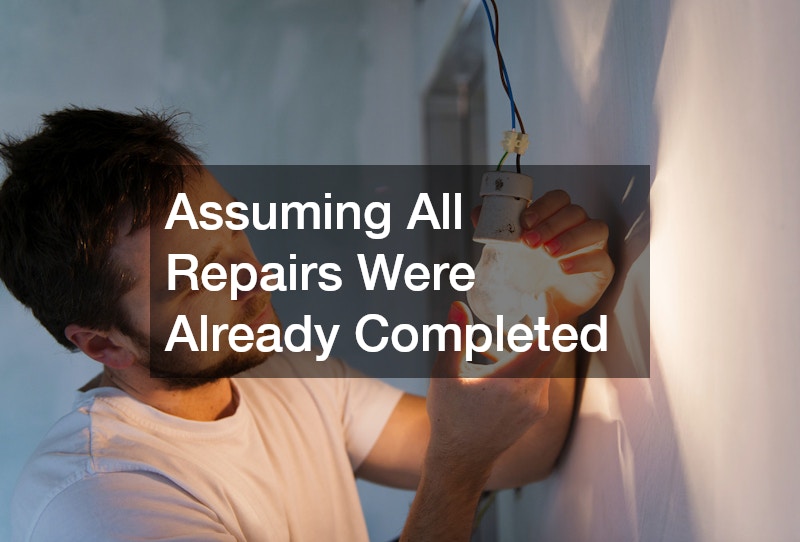Introduction
As a future homeowner, the process of purchasing a new property can be both exciting and daunting. There are numerous factors to consider and steps to take to ensure a smooth transition into your new home. Avoiding common mistakes can help make the experience more enjoyable and less stressful.
From overlooking utility transfers to neglecting to update mailing addresses promptly, there are several pitfalls to watch out for during the moving process. By being proactive and thorough in your approach, you can avoid unnecessary headaches and delays. This article will outline some of the most common mistakes future homeowners make and provide tips on how to avoid them.
Whether you’re purchasing your first home or moving into a new property, being aware of potential pitfalls can help you navigate the process with confidence. By taking the time to plan ahead and do your research, you can ensure a successful transition into your new space.
Overlooking Utility Transfers and Service Setups
One common mistake that future homeowners make is overlooking the need to transfer utilities and set up essential services in their new property. Failure to do so can result in delays in residential moving in and inconvenience once you arrive at your new home.
Before the move, be sure to contact your utility providers to transfer services to your new address. This includes electricity, water, gas, internet, and cable. Additionally, schedule appointments with plumbing services and other providers to ensure everything is in working order before your move-in date.
By addressing utility transfers and service setups ahead of time, you can avoid unnecessary stress and ensure a smooth transition into your new home. Taking care of these essential tasks early on will help you settle in quickly and comfortably.
Forgetting to Budget for Professional Help

Another common mistake future homeowners make is forgetting to budget for professional help during the moving process. Whether you need assistance from long distance movers or plumbing services, hiring professionals can help make the transition smoother and less stressful.
Before moving day, research a reputable moving company and service providers in your area. Get quotes and estimates for their services to help you budget accordingly. Remember to factor in any additional costs for unexpected services that may arise during the move.
While it may be tempting to cut costs by doing everything yourself, investing in professional help can save you time and hassle in the long run. By budgeting for these services upfront, you can ensure a successful move without breaking the bank.
Skipping a Final Walkthrough of the New Property
Skipping a final walkthrough of the new property is a mistake that future homeowners should avoid at all costs. This step is crucial in ensuring that everything is in order before you move in and can help you identify any issues that need to be addressed.
Before closing on the property, schedule a final walkthrough with your real estate agent to inspect the condition of the home. Check for any damage or issues that were not present during previous visits. Make note of any discrepancies and address them with the seller before finalizing the sale.
By taking the time to conduct a final walkthrough, you can avoid potential surprises and ensure that your new home is move-in ready. This step will give you peace of mind knowing that everything is in order before you settle into your new space.
Ignoring Local Zoning and Property Line Information
Ignoring local zoning and property line information is a mistake that future homeowners should not overlook. Before a land sale or purchasing a new property, it’s important to understand the regulations and restrictions that may impact your plans for the space.
Research the local zoning laws and regulations in your area to ensure that your intended use for the property is allowed. Additionally, verify property line information to prevent any boundary disputes with neighbors down the line. Consulting with a real estate agent or lawyer can help you navigate these complex issues.
By educating yourself on local zoning and property line information, you can avoid potential legal issues and conflicts in the future. Being proactive in this regard will help you make informed decisions about your new property and set you up for long-term success.
Not Researching the New Neighborhood Thoroughly
Not researching the new neighborhood thoroughly is a common mistake that future homeowners make when purchasing a new property. Understanding the area where you will be living is essential for ensuring that it meets your needs and lifestyle preferences.
Before committing to a new home, take the time to explore the neighborhood and surrounding areas. Research factors such as school districts, amenities, crime rates, and property values. Consider visiting the area at different times of day to get a sense of the community and lifestyle.
By conducting thorough research on the new neighborhood, you can make an informed decision about your home purchase. Choosing a location that aligns with your preferences and lifestyle will help you settle in more comfortably and enjoy your new surroundings.
Missing Hidden Costs in the Purchase Agreement

Missing hidden costs in the purchase agreement is a mistake that future homeowners should be aware of when buying a new property. It’s important to carefully review the contract and understand all the terms and fees associated with the sale.
Before signing the purchase agreement, review the document with a real estate agent or lawyer to ensure that you are aware of all costs involved. Look for hidden fees such as closing costs, property taxes, homeowners association fees, and maintenance expenses. Factor these costs into your budget to avoid any surprises later on.
By taking the time to review the purchase agreement thoroughly, you can avoid unexpected financial burdens and ensure that you are fully prepared for homeownership. Being diligent in this process will help you make a sound investment and set you up for success in your new home.
Leaving Behind Essential Personal Records
Leaving behind essential personal records is a mistake that future homeowners should avoid when moving to a new property. Forgetting important documents can cause delays and complications during the transition process.
Prior to the move, gather all essential personal records such as identification documents, financial records, insurance documents, and medical records. Keep these items organized and easily accessible during the move to ensure that they are not misplaced or left behind. Consider creating digital copies of important documents for added security.
By taking the time to gather and organize your personal records, you can streamline the moving process and avoid potential setbacks. Having these essential documents on hand will give you peace of mind knowing that you are prepared for any situation that may arise.
Neglecting to Update Mailing Addresses Promptly
Neglecting to update mailing addresses promptly is a common oversight that future homeowners make when moving to a new property. Failing to update your address can result in missed mail, delayed deliveries, and confusion with service providers. This can be a nightmare after you accept real estate for sale.
Before the move, make a list of all the organizations and individuals that need to be informed of your address change. This includes banks, credit card companies, utility providers, insurance companies, and subscriptions. Update your address with the post office and set up mail forwarding to ensure that you receive all your mail at your new address.
By promptly updating your mailing addresses, you can avoid missing important correspondence and keep your information current. Taking the time to notify relevant parties of your address change will help you maintain effective communication and organization during the move.
Assuming All Repairs Were Already Completed

Assuming all repairs were already completed is a mistake that future homeowners should be cautious of when purchasing a new property. It’s important to verify the condition of the home and any repairs that may be needed before closing on the sale. Not all houses for sale are treated properly.
Prior to finalizing the purchase, have a professional inspector assess the property for any potential issues or needed repairs. This will help you understand the condition of the home and negotiate repairs with the seller if necessary. Don’t assume that all repairs have been completed without verifying their status.
By validating the completion of repairs and addressing any outstanding issues, you can avoid unexpected costs and ensure that your new home is safe and well-maintained. Taking the time to conduct a thorough inspection will give you peace of mind knowing that you are making a sound investment.
Underestimating the Time Required for the Move
Underestimating the time required for the move is a common mistake that future homeowners should be mindful of when planning their relocation. Moving can be a time-consuming process that requires careful organization and preparation.
When creating a moving timeline, be realistic about the time needed to pack, transport, and unpack your belongings. Consider factors such as the size of your household, the distance of the move, and any additional services you may need. Allow yourself ample time to complete each step of the moving process without feeling rushed or overwhelmed.
By accurately estimating the time required for the move, you can avoid last-minute stress and ensure a smooth transition into your new home. Planning ahead and giving yourself enough time to complete each task will help you stay on track and make the moving process more manageable.
Not Scheduling an Inspection for Rural or Undeveloped Lots
Not scheduling an inspection for rural or land for sale is a mistake that future homeowners should be cautious of when purchasing land. These types of properties may have unique challenges and considerations that require a thorough assessment before buying.
Before finalizing the purchase of rural or undeveloped land, schedule an inspection with a qualified professional to assess the condition of the property. Check for potential issues such as soil quality, environmental restrictions, access to utilities, and zoning regulations. This inspection will help you make an informed decision about the land purchase.
By scheduling an inspection for rural or undeveloped lots, you can avoid unforeseen obstacles and ensure that the property meets your needs and expectations. Being proactive in this regard will help you make a sound investment and avoid potential complications in the future.
Failing to Coordinate Move-In Dates with Service Providers
Failing to coordinate move-in dates with service providers is a common oversight that future homeowners should be mindful of when relocating to a new property. It’s important to ensure that essential services are set up and ready to go before you move in.
Prior to your move-in date, contact service providers such as internet, cable, electricity, water, and gas to schedule installations and activations. Coordinate these appointments to align with your move-in date to avoid any disruptions or delays. Make sure that all services are up and running before you arrive at your new home.
By coordinating move-in dates with service providers, you can minimize downtime and ensure a smooth transition into your new property. Planning ahead and communicating with providers will help you settle in quickly and comfortably without any service interruptions.
Overpacking Without a Clear Unpacking Plan

Overpacking without a clear unpacking plan is a mistake that future homeowners should avoid when preparing for a move. Packing too many items can make the unpacking process overwhelming and lead to clutter in your new home.
Prior to the move, declutter and organize your belongings to reduce the number of items you need to pack. Create a detailed unpacking plan that prioritizes essential items and rooms first. Label boxes clearly and pack strategically to make the unpacking process more efficient and manageable.
By avoiding overpacking and having a clear unpacking plan, you can streamline the moving process and settle into your new home more easily. Taking the time to organize and plan ahead will help you create a functional and comfortable living space without unnecessary clutter.
Conclusion
As a future homeowner, avoiding common mistakes during the moving process is essential for a successful transition into your new property. By being proactive and thorough in your approach, you can minimize stress and ensure a smooth move. From coordinating service providers to updating mailing addresses promptly, taking the time to plan ahead will help you settle into your new home with ease.
